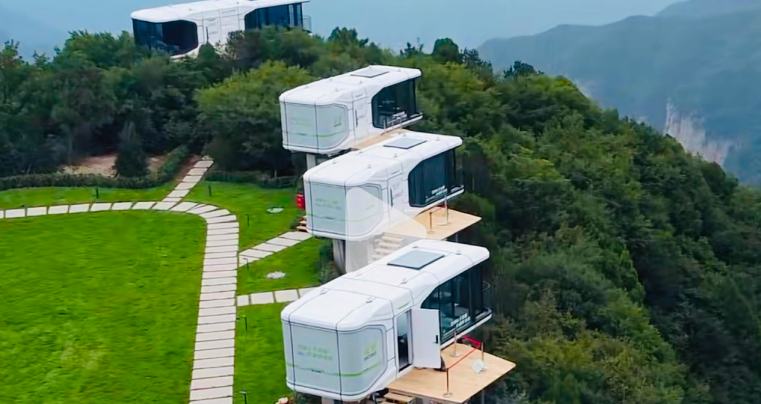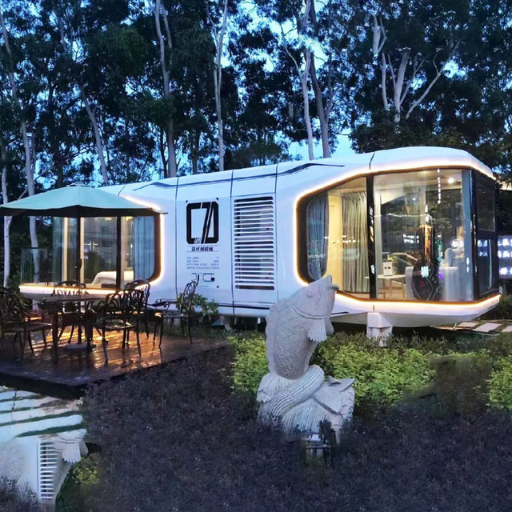Why Modular Houses Are the Future of Lasting Living
Modular homes are significantly acknowledged as a pivotal remedy for sustainable living, supplying a mix of effectiveness, cost-effectiveness, and environmental benefits. Their building in regulated settings substantially minimizes waste and enhances accuracy, while the possibility for incorporating advanced energy-efficient systems places them as a forward-thinking choice in housing. Furthermore, the flexibility of modular layouts permits the integration of sustainable modern technologies and products customized to private requirements. As we navigate the difficulties of urbanization and ecological sustainability, one must take into consideration just how these homes could redefine our technique to living areas.
Ecological Advantages of Modular Residences
The ecological advantages of modular homes stand for a considerable action towards sustainable living. These homes are built in controlled factory setups, which significantly minimizes waste produced during the building process. By optimizing products and minimizing excess, modular construction adds to an extra reliable usage of sources contrasted to traditional structure approaches.
In addition, modular homes are usually made with power effectiveness in mind. Numerous include sophisticated insulation strategies, energy-efficient home windows, and lasting materials, contributing to reduced energy intake. This can lead to minimized greenhouse gas discharges over the lifespan of the home, enhancing its overall environmental account.
The capability to transport and assemble modular parts on-site likewise minimizes the carbon footprint connected with building and construction logistics. Additionally, lots of modular homes are built to be versatile and easily upgradeable, enabling homeowners to apply sustainable modern technologies, such as photovoltaic panels and energy-efficient heater, with time.
Eventually, the environmental advantages of modular homes not only advertise sustainable living but additionally urge an even more liable strategy to housing development, lining up with international initiatives to combat climate modification and protect all-natural resources for future generations.
Cost-Effectiveness and Affordability
Structure a home commonly stands for one of the largest monetary investments individuals make in their life time, and modular homes supply an engaging solution for those seeking cost-effectiveness and cost. One of the main benefits of modular homes is their reduced building prices contrasted to traditional site-built homes. The structured production process enables considerable cost savings on labor and materials, which equates to reduce costs for consumers.
Furthermore, modular homes normally have shorter building and construction timelines. This not just reduces expenditures connected to funding and insurance policy yet also mitigates the risks related to rising cost of living and rising and fall market problems. Lots of purchasers locate that modular homes can be personalized to fit their budget plans without compromising quality or layout.
In addition, power effectiveness is typically built into the design of modular homes, causing lowered energy bills in time. Numerous manufacturers focus on lasting materials and techniques, better boosting the long-lasting financial viability of these homes. On the whole, the combination of initial cost financial savings, fast construction, and recurring energy performance makes modular homes an eye-catching choice for those seeking to purchase sustainable living without damaging the bank.
Performance in Construction
Modular homes not just provide economic benefits yet likewise excel in building efficiency. The modular structure procedure includes the synchronised building of modules in a manufacturing facility setting while website preparation happens simultaneously. This parallel strategy significantly lowers the general timeline from conception to conclusion, typically reducing building time by approximately half compared to standard methods.
Additionally, factory-controlled settings improve quality control. By using accuracy manufacturing methods, modular homes are constructed to specific specifications, lessening waste and mistakes. This consistency not only brings about a better item however likewise contributes to sustainable methods by lowering product waste during building.
In addition, using modern technology and automation in the production procedure allows for quicker assembly and minimized labor prices. As soon as the components are transferred to the website, they can be successfully put together, additionally expediting the timeline. This streamlined process is not only useful for builders but also lessens disturbances to the surrounding setting throughout building and construction.
Customization and Layout Adaptability
An impressive array of modification alternatives identifies modular homes, enabling house owners to tailor their space to satisfy details demands and choices. This style versatility is a trademark of modular construction, enabling customers to choose whatever from layout and room layouts to coatings and components. Unlike standard homes, modular layouts assist in a collective approach where home builders and engineers work very closely with homeowners, making certain that each aspect straightens with aesthetic wishes and individual way of livings.
Additionally, modular homes can be easily reconfigured or broadened, accommodating transforming household dynamics or advancing individual preferences. This adaptability not just enhances the home's capability but likewise adds to long-lasting sustainability, as homeowners can customize their spaces as opposed to seek new housing services.

Future Trends in Sustainable Real Estate
Arising patterns in lasting housing are improving the landscape of residential building, emphasizing ingenious technologies and environment-friendly methods. One significant fad is the combination of smart home innovation, which boosts energy effectiveness with automated systems that monitor and enhance power consumption. This not only minimizes energy costs however likewise contributes to a lower carbon impact.
Furthermore, the usage of lasting products is coming to be increasingly typical. Home builders are going with reused, in your area sourced, or rapidly sustainable materials, which minimize environmental impact and support regional economic climates. In addition, modular homes are obtaining appeal for their reduced waste during construction and their adaptability to various terrains and climates.
One more pattern is the consolidation of eco-friendly roofs and living wall surfaces, which boost air quality and provide all-natural insulation. These attributes also advertise biodiversity in pod studio urban areas.
Conclusion
Finally, modular homes become a critical service for sustainable living, supplying substantial environmental benefits via lowered waste and energy efficiency. Their cost-effectiveness and affordability attend to the growing housing needs in metropolitan areas, while reliable building and construction procedures enhance total efficiency. The fundamental customization and layout versatility deal with varied preferences and demands. As fads in lasting housing advance, modular homes are poised to play an important role in advertising environmentally friendly living techniques for future generations.
Building a home commonly represents one of the biggest monetary investments people make in their lifetime, and modular homes supply a compelling service for those looking for cost-effectiveness and cost. One of the primary advantages of modular homes is their reduced construction costs contrasted to traditional site-built homes. Generally, the mix of initial expense financial savings, quick construction, and continuous power efficiency makes modular homes an appealing alternative for those looking to invest in sustainable living without damaging the financial institution.
Inevitably, the personalization and layout adaptability used by modular homes ensure that they are not simply structures, but customized refuges that mirror the distinct identifications of their passengers while promoting sustainable living practices.

Comments on “Discover the Future of Compact Living with Pod Homes and Modular Designs”